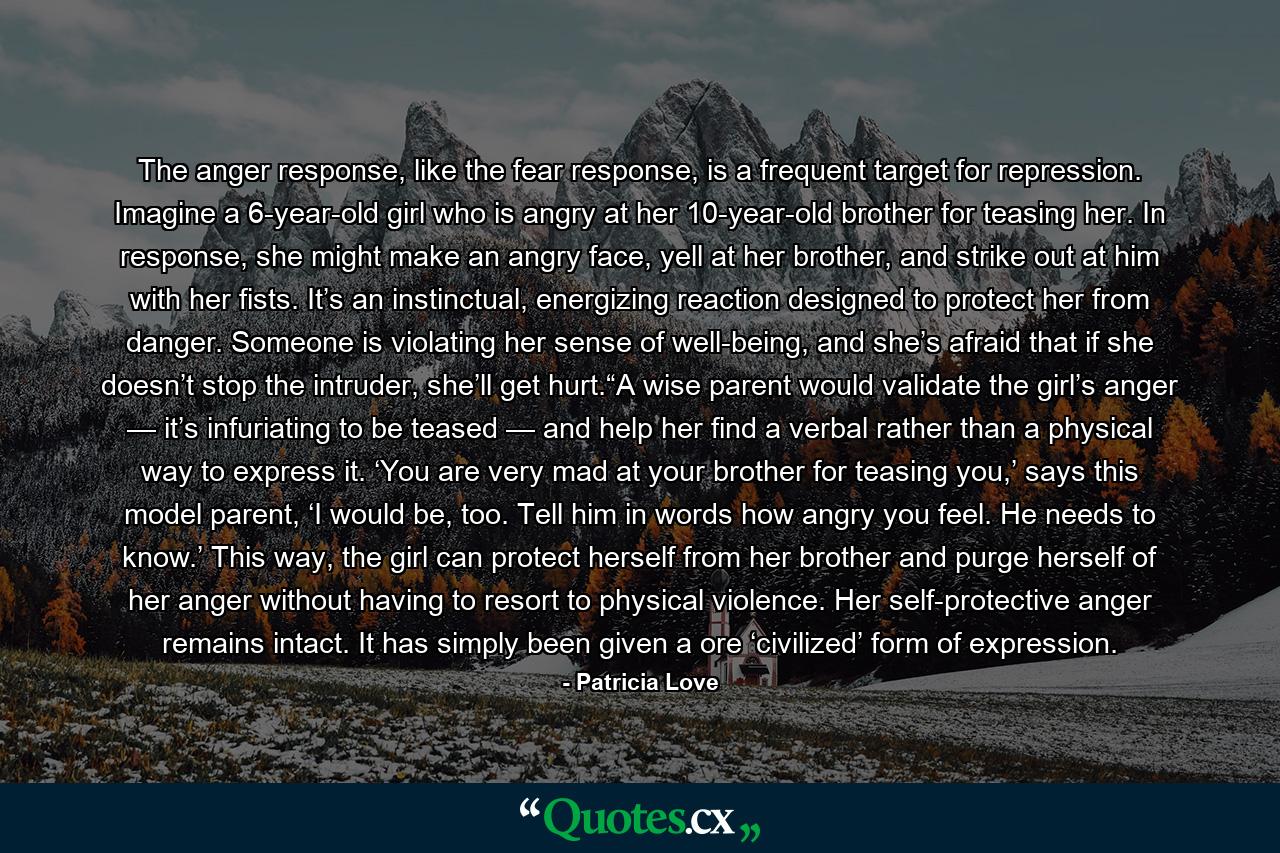The anger response, like the fear response, is a frequent target for repression. Imagine a 6-year-old girl who is angry at her 10-year-old brother for teasing her. In response, she might make an angry face, yell at her brother, and strike out at him with her fists. It’s an instinctual, energizing reaction designed to protect her from danger. Someone is violating her sense of well-being, and she’s afraid that if she doesn’t stop the intruder, she’ll get hurt.“A wise parent would validate the girl’s anger — it’s infuriating to be teased — and help her find a verbal rather than a physical way to express it. ‘You are very mad at your brother for teasing you,’ says this model parent, ‘I would be, too. Tell him in words how angry you feel. He needs to know.’ This way, the girl can protect herself from her brother and purge herself of her anger without having to resort to physical violence. Her self-protective anger remains intact. It has simply been given a ore ‘civilized’ form of expression.
